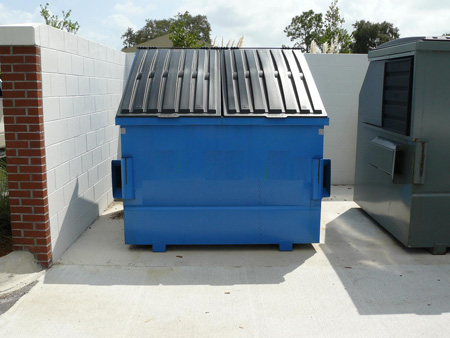Introduction
When tackling a significant clean-up project, whether it's a home renovation, spring cleansing, or a workplace step, among the first concerns that enters your mind is: What can you put in a dumpster? It's crucial to recognize what products and products serve for disposal in a dumpster to prevent fines and guarantee appropriate waste monitoring. In this overview, we'll discover everything you need to find out about dumpster use, kinds of products enabled, safety guidelines, and tips for reliable waste disposal.
What Can You Place in a Dumpster? A Comprehensive Guide
Understanding Dumpster Rentals
Renting a dumpster can be an incredibly hassle-free option for taking care of large quantities of waste. However before diving into specifics regarding what can go in these containers, allow's first comprehend what dumpster leasings entail.
Types of Dumpsters Available
Residential Dumpsters: Typically smaller and created for home tasks like improvements or decluttering. Commercial Dumpsters: Larger dumpsters utilized by services for normal waste collection. Roll-off Dumpsters: These are flatbed containers that can be rolled off vehicles at your location. Compactor Dumpsters: Used primarily by companies to press waste and conserve space.Common Items You Can Dispose Of
When it involves basic household cleanouts or building and construction tasks, most individuals question what common things they can throw right into a dumpster.
Household Junk
- Old furniture (sofas, chairs) Appliances (fridges, microwaves) Carpet remnants Clothing and textiles General trash (packaging products, busted toys)
Construction Debris
- Wood scraps Drywall pieces Roofing materials Concrete and bricks Siding
What Not to Put in a Dumpster?
While understanding what you can deal with is necessary, it's just as important to recognize what products are prohibited. Taking care of forbidden items can bring about significant fines and complications.
Hazardous Materials
Paints & Solvents: These include poisonous chemicals that need details disposal methods. Asbestos: Incredibly unsafe; requires professional handling. Batteries: Vehicle and family batteries consist of unsafe compounds that require unique disposal. Chemicals & Pesticides: Hazardous substances that can infect landfills.Electronics
Many communities have strict guidelines on getting rid of electronic tools as a result of unsafe elements like lead and mercury:
Televisions Computers PrintersSpecial Garbage disposal Regulations
It's essential to acquaint yourself with neighborhood regulations pertaining to special kinds of waste as they usually vary by location.
Appliance Disposal Guidelines
Refrigerators and fridges freezer frequently include refrigerants that may hurt the setting if not dealt with correctly. Many areas call for these home appliances to be recycled or taken care of separately.
The Significance of Recycling When Using a Dumpster
Not all your waste requires to wind up in the land fill!
Recyclable Materials Include:
Paper products (papers, cardboard) Glass containers & & containers Metal canisters (light weight aluminum, tin) Certain plastics (check local guidelines)How to Maximize Your Dumpster Rental Experience?
To get one of the most out of your rental experience while appreciating regional guidelines:

Safety Tips When Utilizing a Dumpster
Safety must always be vital when dealing with heavy items and possibly unsafe materials.
1. Put On Safety Gear
Ensure you're using handwear covers, durable shoes, and possibly also safety glasses when taking care of debris.
2. Know Your Limits
Don't attempt to raise heavy objects alone; usage tools or ask for assistance when necessary.
Cost Factors Involved with Dumpster Rentals
Understanding prices can save you cash down the line!
1. Size Matters
The size of the dumpster influences rates; bigger dumpsters usually set you back more.
2. Weight Limits
Most rental companies have weight restrictions; exceeding them may incur added fees.
FAQs About What Can You Place In a Dumpster?
Q1: Can I get rid of old mattresses in a dumpster? Yes, you can throw out old mattresses in many dumpsters unless or else defined by your rental solution because of reusing guidelines in some areas.
Q2: Exist constraints on lawn waste? Some companies enable yard debris however contact your company as others may call for different disposal approaches because of municipal regulations.

Q3: How do I get rid of big appliances properly? Contact your local waste management authority for standards as several areas supply appliance recycling programs or special collection days.
Q4: What happens if I put banned items in my dumpster? If prohibited things are uncovered during pickup, you may deal with fines or be required to fetch them from the land fill website yourself.
Q5: Exist certain times when I need to schedule my dumpster pickup? Arrange pick-ups throughout weekdays unless otherwise guided; weekend timetables might differ based upon demand.
Q6: Is it alright to share my dumpster with neighbors? While sharing is feasible, ensure every person settles on what goes in it given that liability concerns can develop throughout pickup if forbidden products are included.
Conclusion
Navigating via the globe of dumpsters doesn't need to be daunting if you're educated concerning what you can take into them-- along with adhering strictly to neighborhood guidelines regarding waste management practices! This thorough overview has actually outlined everything from appropriate items and harmful materials that should not enter your rented container completely via security pointers while utilizing one effectively!
So next time you're faced with cleaning up mess or taking care of construction particles remember this guide-- your best source for comprehending precisely what can you put in a dumpster ensuring accountable disposal methods each step along the way!